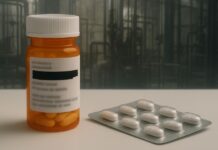I think everyone knows of the “accepted wisdom” that over the age of 60, we should all get a regular colonoscopy, to exclude polyps, which can be pre-cancerous. That’s lately been dropped to 45. Is it all hoo-haa just gaslighting, or “screening” to drum up extra business?
There are two questions hanging, really: whether we are subjecting far too many people to a disagreeable procedure (and an anesthetic is always dangerous, no matter the reassurances)? And whether even those lesions we do detect can really be helped much by subsequent surgery and/or chemo?
OF COURSE they will say it works wonders; trot out a stream of cases that were “saved” and have happy patients telling everyone else they should get the procedure, it’s worth it. But that’s marketing, not science. Science (proper science) works on numbers: how many people make it to, say, 5 years or 10 years, in a group that is screened, compared to a group which is not screened.
Mammograms
And the answer with mammograms, for sure, is that the outcomes are entirely negative. More women are hurt or die because of mammogram screening, followed by worthless or problematic treatments, than die of breast cancer. Mammograms are a useless tool. Screening is just a scam. They know that but keep pushing it on women, ads on TV and pink ribbon marches “to raise public awareness.”
In December of 1992, the New York Times published facts about the Mammography scam. The story included the following: “Dr. I. Craig Henderson, director of the clinical cancer center at the University of California in San Francisco, said, ‘We have to tell women the truth’ …
“Dr. Robert McLelland, a radiologist at the University of North Carolina School of Medicine, said… ‘In our zeal to promote mammography, we as radiologists and I’m one of them haven’t looked at the evidence.’ “
In July 1995, the prestigious British medical journal The Lancet soundly blasted the whole ACS NCI mammography program:
“The benefit is marginal, the harm caused is substantial, and the costs incurred are enormous…”
“When analysed in terms of population benefit, the randomised controlled prospective trials showed that the numbers of women screened to achieve one less death per year ranged from 7,086 (Health Insurance Plan of New York), to 63,264 (Malmo, Sweden), to infinity (Canadian National Breast Screening Study). About 5% of screening mammograms are positive or suspicious, and of these 80-93% are false positives that cause much unnecessary anxiety and further procedures including surgery.¹ (my underlining)
Prostate
Same story with prostate screening, really. The much-vaunted PSA test (prostate specific antigen) is the tool that is used to pull many men off the track and subject them to treatment. Mostly that treatment is unwarranted, disruptive and not really worthwhile in terms of survival rates.
Of course you’ll never hear that from a urologist, but consider: according to the Harvard Health website (March 12, 2014), “Just in case” PSA screening often leads to men being diagnosed with slow-growing tumors that might never have caused them any problems or shortened their lives. Understandably, most men seek treatment anyway, but this may expose them to treatment complications, such as erectile dysfunction and urinary difficulties.”
That doesn’t even take account of the complications of a general anesthetic, especially in older patients (Studies report a mortality rate within the range of 5-10% for patients over 65 years old undergoing surgery with general anesthetic).
Even the National Cancer Institute, no champion of the truth, currently says on their website: “Using the PSA test to screen men for prostate cancer is controversial because it is not yet known for certain whether this test actually saves lives.” (May 14, 2024)
Thing is, we have to compare what happens if we pull people off the line and subject them to treatment with what happens if we do nothing (watchful waiting). So far, the results are not impressive.
The truth is that almost all men will get prostate cancer, sooner or later. Most die without ever knowing it. I remember at med school being told that “If you want to get cancer, get prostate cancer,” that’s how relatively harmless it is. Of course there are men out there (more than one has written to me) who swear that the PSA test saved their life, so SCREENING WORKS!!!
But they don’t know that if nothing had been done, they would be fine anyway.
Colon Cancer
But where do we stand on colon or colorectal cancer (CRC), the third leading cancer in both men and women, and the second most common cause of cancer death.
The received wisdom in the USA, with its industrial-scale fleecing of the public, shouts clamorously that if everyone could be persuaded to have regular colonoscopies, CRC could be virtually eliminated.
But according to a HUGE European study, the benefits of colonoscopy are minimal at best.² The 10-year study, published recently in the New England Journal of Medicine, found that colonoscopies cut the risk of colon cancer by about a fifth, far below estimates from earlier scientific studies. What’s more, the procedure didn’t help significantly reduce the risk of colon cancer deaths.
In the trial, which involved Norway, Sweden and Poland—based on 80,000 men and women ages 55 to 64—people were randomly invited to get colonoscopies or receive regular care that didn’t include colon cancer screening. Of those who were invited to have colonoscopies — whether they got them or not — there was an 18% reduction in developing the disease and no statistically significant reduction in the likelihood of colon cancer death.
Well, I’m sure you can guess what came next! The US “industry” which supports colonoscopy went into overdrive to try and discredit this study (which had no financial motives that I could see) by quoting all their own self-serving science as evidence, which “proved” that colonoscopy was just wonderful and saved lives!
They were in a frenzy to show they were right and this study was “flawed” (the usual escape word). The technique of the European doctors was criticized. But not everyone was so defensive:
In the U.S., “we have exaggerated the benefits of colon cancer screening,” said Dr. Otis Brawley, an oncologist at Johns Hopkins University and the former chief medical officer of the American Cancer Society. “Now, that being said, that doesn’t mean that there is no benefit.”
He called the study’s potential impact an “unfortunate” consequence of scientists’ conducting “science out in public.” In other words, if you are going to prove me wrong, keep it out of public view!
Other Tests
Obviously, the US recommendations for this lucrative income stream have not altered one jot in recent years, except to recommend we are all tested at a far younger age: currently 45 years.
The study focused on colonoscopy; other colorectal screenings include an at-home, noninvasive stool blood test, or fecal immunochemical test, and a flexible sigmoidoscopy, which is a narrow tube with a camera that examines only a section of the colon and is far more effective (but is rarely done).
Take your choice if you want to join the circus. You never know of course, YOU may be one of the lucky ones where the test was accurate and helpful. But the chance won’t even be as high as 50:50!
For your perspective, I have never had a colonoscopy and don’t intend to, not because I don’t trust the test but because I don’t trust surgery in the USA! No-one is going to put me under. Ha!
To Your Good Health,Prof. Keith Scott-Mumby
The Official Alternative Doctor
References:
- Screening mammography and public health policy: the need for perspective. Wright, C.J. et al. The Lancet, Volume 346, Issue 8966, 29 – 32
- N Engl J Med 2022;387:1547-1556 doi: 10.1056/NEJMoa2208375 vol. 387 no. 17






